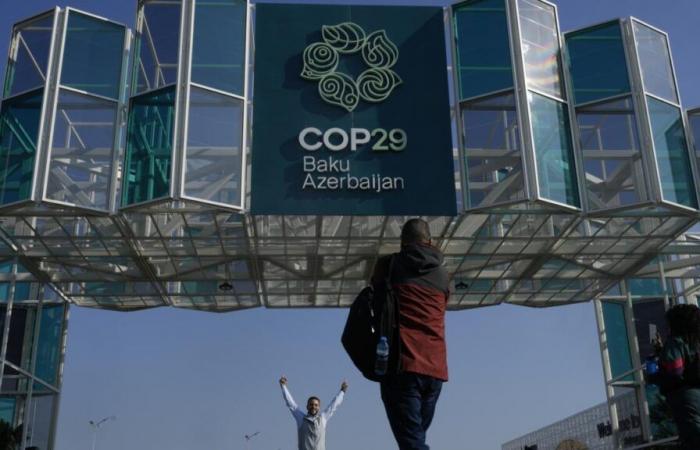COP29, the 29th UN conference on climate change, starts this Monday morning in Baku, Azerbaijan. The main issue is whether States will agree on a new amount of aid to developing countries to finance their energy transition. Seyni Nafo is the spokesperson for the group of African negotiators. He also chairs the Green Climate Fund and coordinates the African Union Adaptation Initiative. Online from Baku, he answers questions from Christophe Boisbouvier.
RFI: What do you expect from this COP29?
Seini Nafo: We are expecting an ambitious result on the new financing target which should replace the 100 billion target. For African ministers and heads of state, the instructions given to us are to have a target of approximately $1,300 billion, which would be in line with the needs of developing countries.
In recent years, aid from rich countries to developing countries for climate adaptation has amounted to $100 billion per year. If you target 1300 billion from 2025, that means thirteen times more money, right?
In fact, we are already between 105 and 115 billion for 2025. So we will in fact start from a floor of 110 to go towards a ceiling of 1300 by 2035.
With a gradual increase every year…
Exactly, every year.
So, there is a problem all the same, which is that Donald Trump will return to power. In 2017, he announced his country’s withdrawal from the 2015 Paris climate agreement and now that he is re-elected, are you not afraid that he will do it again and withdraw his country from all these agreements?
Yes, it is very likely that the United States will withdraw from the Paris Agreement and perhaps even worse, that it will withdraw from the United Nations Climate Convention itself. But we remember that in 2016, the Trump administration created a large bilateral development agency, the DFC Development Finance Corporation, which at the time had a capital increase of up to $60 billion in developing countries. development, in particular to support the American private sector, but not only. And so what we will have to do, we discuss it a lot at group level, is to also look at the bilateral side, where there are opportunities.
Africa today has a seat in the G20, which was not the case in 2016. African heads of state are much more present on this climate issue. Last year, in particular, we had the first summit of African heads of state on climate. So our strategy is to also work on a bilateral United States-Africa agenda and we believe that Africa has cards to play beyond the Climate Convention.
But frankly, with a climate skeptic in the White House, do you really think that the envelope from rich countries will increase up to 10 to 12 times the current amount by 2035?
You know, we are in a negotiation. 1300 billion is the final goal. That is to say that for us, without fetishism, much more than the figure itself, the most important thing would be to achieve a certain number of objectives, for example universal access to modern energies.
The rich countries which finance this envelope claim that they only represent 30% of greenhouse gas emissions. And they are now asking that China and the Gulf countries also be called upon to contribute. What do you think?
In fact, it is a negotiation strategy of developed countries. The reality is that China, like the Gulf countries, is contributing to the climate effort. You can look at the financing provided by the Development Bank of China, by the Export Bank of China, by the Saudi funds for development, by the Islamic Bank for development… The reality is that the countries of the south contribute and contribute as much if not more than developed countries.
Yes, but if you ask for 1.3 trillion dollars in aid per year by 2035, that represents a big effort for all the countries you are talking to. So why should China be exempt from making this effort?
We are in an international monetary system, which means that we literally create money. The United States Federal Reserve, the ECB, the Bank of Japan create money. We have injected colossal sums amounting to tens of billions of dollars under Covid, without this posing any problem. So, for us, the problem is not whether China contributes or not. Developed countries have the means to contribute.
Even if today developed countries have big budgetary problems ahead of them?
We believe that there are financial instruments that can be mobilized and which would have no impact on budgets, in particular SDRs, the IMF’s special drawing rights, which is the currency of the IMF. This was done for Covid. We can mobilize this type of currency. Central banks can help by injecting liquidity. So, there are financial instruments. The question is one of political will.
Also readCOP29: the challenges of the Baku negotiations for the African continent






